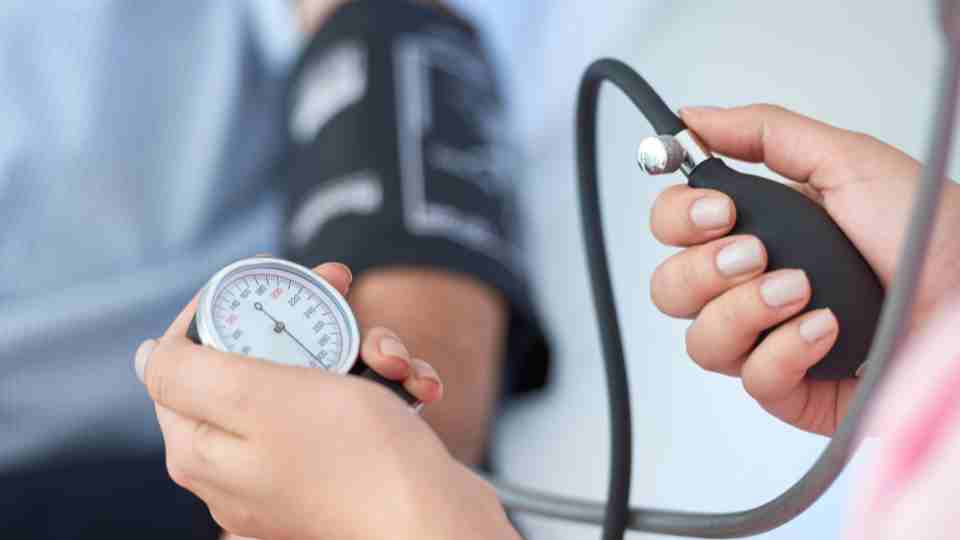
Maintaining optimal blood pressure is essential for overall health and well-being. High blood pressure, or hypertension, is a silent condition that can lead to serious health issues such as heart disease, stroke, and kidney failure if left unmanaged. Regular blood pressure checks are crucial for early detection and management of hypertension. Fortunately, local pharmacies offer convenient and accessible options for blood pressure monitoring. This guide explores the importance of blood pressure checks, the process, and the benefits of utilising Putney Pharmacy’s services.
Blood pressure is the force exerted by circulating blood against the walls of the body’s arteries. It is measured in millimetres of mercury (mmHg) and recorded as two numbers, systolic and diastolic pressure:
Systolic Pressure, the top number, measures the pressure in the arteries when the heart beats.
Diastolic Pressure, the bottom number, measures the pressure in the arteries when the heart is at rest between beats.
It is crucial to your overall health and well-being to get regular blood pressure checks, as early detection of the condition can reduce the risk of complications.

High blood pressure often has no noticeable symptoms, earning it the nickname “the silent killer.” Regular monitoring can detect hypertension early, allowing for timely intervention and management.
Uncontrolled hypertension can lead to severe health problems, including heart attack, stroke, and kidney disease. Regular blood pressure checks help manage these risks by ensuring that any changes are promptly addressed.
For those already diagnosed with hypertension, regular monitoring is crucial to evaluate the effectiveness of prescribed medications and lifestyle changes. It helps healthcare providers make necessary adjustments to treatment plans.
Putney Pharmacy provides an accessible and convenient option for blood pressure monitoring. Unlike scheduling an appointment with a doctor, we offer walk-in services, making it easier for individuals to get their blood pressure checked without long wait times. Pharmacists are trained healthcare professionals who can accurately measure blood pressure and provide valuable advice on managing and maintaining healthy levels. They can also identify when further medical evaluation is needed.

Preparation: To ensure accurate readings, it is essential to prepare correctly. Customers should avoid caffeine, alcohol, and tobacco for at least 30 minutes before the test. It is recommended that patients rest for 5-10 minutes in a quiet environment prior to the test. While being tested, sit with your feet flat on the floor and your back supported.
The Procedure: The blood pressure check at a pharmacy typically involves the following steps:
Positioning: The pharmacist will position your arm so that it is level with your heart, resting comfortably on a table.
Cuff Placement: A blood pressure cuff will be wrapped around your upper arm. Ensure the cuff is not too tight and that you are relaxed.
Measurement: The cuff inflates to restrict blood flow and then deflates, allowing the pharmacist to measure the pressure. This process is quick and painless.
Reading: The pharmacist will record the systolic and diastolic numbers and interpret the results.
Adults aged 18-39 should be checked at least once every 3-5 years if blood pressure is normal.
Adults aged 40 and older should be checked annually, or more frequently if blood pressure is elevated or if there are risk factors for hypertension.

Diet can play a factor in your heart health. High sodium levels can increase blood pressure, so aim to consume less than 2,300 mg per day. Incorporating fruits, vegetables, whole grains, and lean proteins into your diet is also beneficial.
Physical Activity is also important when it comes to reducing your risk of high blood pressure. At least 150 minutes of moderate-intensity aerobic exercise per week, such as brisk walking or cycling, is good for your health. Include muscle-strengthening activities on two or more days a week.
Maintaining a healthy weight can significantly reduce the risk of hypertension. Even a small amount of weight loss can make a difference.
Limiting alcohol consumption not only makes it easier to maintain a healthy weight but can reduce the risks of high blood pressure. The recommended amount of alcohol is no more than two drinks per day for men and one drink per day for women.
Chronic stress can contribute to high blood pressure. Practice stress-reducing techniques such as mindfulness, meditation, and deep breathing exercises.
Finally, quitting smoking is a key step to improving your overall health. Smoking increases blood pressure and damages blood vessels, alongside a host of other negative side effects.
Regular blood pressure checks are essential for maintaining good health and preventing the serious consequences of hypertension. At Putney Pharmacy, we offer a convenient and accessible option for blood pressure monitoring, providing professional guidance and support without the need for an appointment.

By taking advantage of these services, individuals can stay informed about their blood pressure levels, receive tailored advice, and make necessary lifestyle changes to manage and maintain healthy blood pressure.